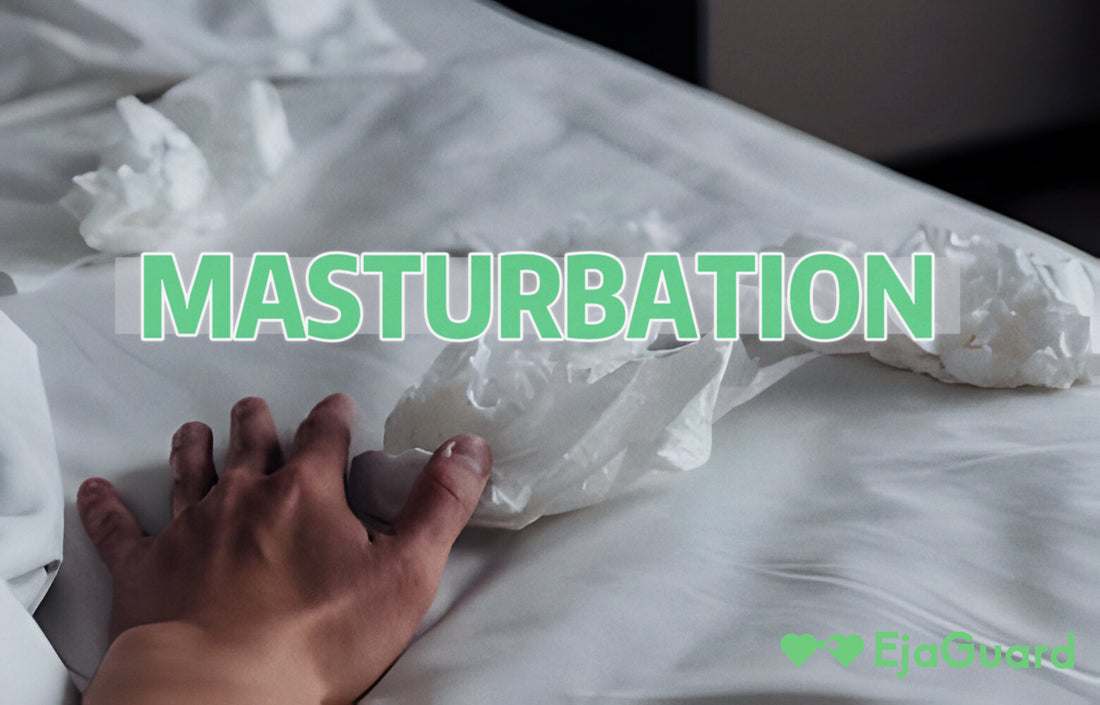Living with erectile dysfunction presents its challenges, leaving many individuals uncertain about its causes. Among the concerns often raised is whether frequent masturbation contributes to this condition. However, research indicates that there is no direct correlation between masturbation and erectile dysfunction.
Erectile dysfunction, also known as impotence, refers to difficulties in achieving or maintaining an erection during sexual activity. It affects a considerable number of males in the United States, estimated at around 30 million individuals.

Dispelling Myths Surrounding Masturbation and Erectile Dysfunction
Common misconceptions suggest that frequent masturbation, particularly in conjunction with pornography consumption, can lead to erectile dysfunction. However, scientific evidence refutes these claims.
The refractory period following ejaculation, during which it may be challenging to achieve an erection, is often mistaken as a consequence of excessive masturbation. Yet, this period is a natural physiological response and is not influenced by masturbation frequency. While the duration of the refractory period varies among individuals, it typically lasts for about an hour, with some experiencing a shorter or longer period.
Research Findings on Masturbation Frequency and Erectile Dysfunction
Studies examining the relationship between masturbation frequency, pornography use, and erectile dysfunction have yielded interesting insights. A 2023 study involving 3586 males found weak or negligible associations between masturbation frequency, pornography consumption, and erectile dysfunction severity.
Similarly, a 2021 study revealed no significant link between masturbation frequency and erectile dysfunction. While prolonged exposure to pornography, particularly exceeding 30 minutes, was somewhat associated with erectile dysfunction, the act of masturbation itself was not implicated.
Benefits and Normalcy of Masturbation
Despite societal taboos surrounding masturbation, it is a common and normal aspect of human sexuality. Surveys indicate that a significant proportion of males engage in masturbation regularly, highlighting its prevalence and acceptance.
Masturbation offers various benefits, including facilitating sexual exploration, fostering self-awareness, and promoting self-esteem and body positivity. It may also aid in managing certain sexual challenges such as premature ejaculation.
Furthermore, research suggests potential health benefits of masturbation, including improved sleep quality and a reduced risk of prostate cancer. However, further investigation is needed to validate these findings conclusively.
Understanding the Causes and Risk Factors of Erectile Dysfunction
While frequent masturbation does not directly cause erectile dysfunction, the condition often stems from a combination of factors. Psychological issues such as depression and performance anxiety, along with underlying medical conditions like cardiovascular disease and diabetes, are common contributors.
Certain lifestyle factors, including smoking, alcohol consumption, and illicit drug use, can exacerbate erectile dysfunction. Additionally, medications such as antidepressants and antipsychotics may also play a role in its development.
Preventive Measures and Treatment Options
Preventing erectile dysfunction involves addressing modifiable risk factors through lifestyle modifications. Quitting smoking, reducing alcohol intake, maintaining a healthy diet, and regular exercise can help mitigate the risk.
Medical interventions, including medications like Viagra and Cialis, are available for managing erectile dysfunction symptoms. Consulting a healthcare provider is crucial for proper diagnosis and treatment planning. Primary care providers or specialists like urologists can offer comprehensive evaluations and personalized treatment strategies.
In Conclusion
While concerns about the impact of masturbation on erectile dysfunction are widespread, scientific evidence suggests otherwise. Masturbation, when practiced in moderation, is a normal and healthy aspect of human sexuality. Understanding the multifactorial nature of erectile dysfunction and addressing underlying causes and risk factors are essential steps toward effective management and improved sexual health.
FAQS
• Does excessive masturbation cause erectile dysfunction?
· Excessive masturbation is not directly linked to erectile dysfunction. While some may experience temporary difficulty achieving an erection after frequent masturbation, it is typically a short-term issue and not a direct cause of erectile dysfunction.
• Can frequent pornography use lead to erectile dysfunction?
· Prolonged exposure to pornography may contribute to erectile dysfunction, particularly if it leads to compulsive behaviors or desensitization to real-life sexual stimuli. However, pornography use alone is not the sole cause of erectile dysfunction.
• How often is considered excessive masturbation?
· There is no specific threshold for what constitutes excessive masturbation, as it varies from person to person. Generally, if masturbation interferes with daily functioning or leads to distress, it may be considered excessive.
• Are there any health benefits to masturbation?
· Masturbation has several potential health benefits, including stress relief, improved mood, and enhanced sleep quality. Some studies suggest it may also reduce the risk of prostate cancer, although more research is needed to confirm this.
• What are the risk factors for erectile dysfunction?
· Risk factors for erectile dysfunction include age, underlying medical conditions such as diabetes and cardiovascular disease, psychological factors like stress and anxiety, lifestyle factors such as smoking and excessive alcohol consumption, and certain medications.
• How can I prevent erectile dysfunction?
· To prevent erectile dysfunction, focus on maintaining a healthy lifestyle, including regular exercise, a balanced diet, adequate sleep, and stress management. Avoiding tobacco and limiting alcohol consumption can also help reduce the risk.
• When should I seek medical help for erectile dysfunction?
· If you experience persistent or recurrent difficulties achieving or maintaining an erection, it's essential to consult a healthcare professional. They can assess your symptoms, identify any underlying causes, and recommend appropriate treatment options.
• What are the treatment options for erectile dysfunction?
· Treatment options for erectile dysfunction may include medications such as Viagra or Cialis, psychotherapy, lifestyle changes, vacuum erection devices, or surgery in severe cases. The most suitable treatment will depend on individual circumstances and preferences.
 Buy Now
Buy Now



